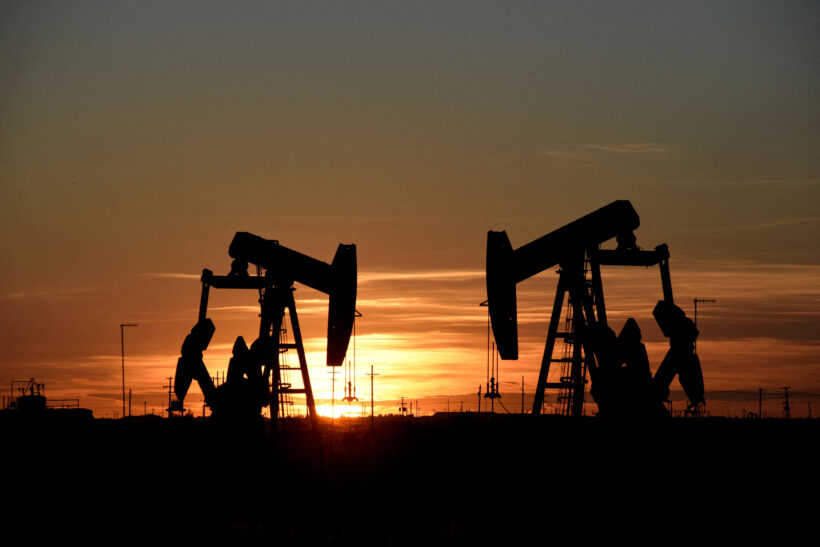
Oil prices jumped more than 3% on Friday after Israel carried out a strike on Iran, triggering fears of an expanding war in the Middle East.
Israel carried out a limited military strike against Iran and is currently assessing the strike’s effectiveness and damage caused, a source familiar with the situation told NBC News. The operation was conducted in the early hours of Friday morning local time.
Both oil benchmarks pared gains after initially jumping over 3% on news of explosions in Iran. Global benchmark Brent traded 1.73% higher at $88.62 a barrel after topping $90 earlier, while the U.S. West Texas Intermediate rose 1.75% to $84.1 per barrel.
Safe haven assets also rose. Spot gold prices surged to a fresh all-time high of 2,411.09 per ounce, while the yen strengthened 0.45% to 153.93 against the U.S. dollar.
Iran’s Fars news agency reported that explosions were heard near the airport in Isfahan, and that flights to Tehran, Isfahan and Shiraz airports have been suspended. Flight tracking site Flight Radar 24 showed that multiple flights were diverted over Iranian airspace early Friday.
A Telegram channel affiliated with the Islamic Revolutionary Guard Corps said that there were no explosions on the ground in Isfahan and that the explosive sounds were caused by Iran’s defenses. The country’s armed forces also said that nuclear facilities in the Isfahan province were “in complete security.”
‘Shadow war’ is over
Israel on Sunday vowed to “exact a price” from Iran in response to the weekend’s large-scale aerial assault on the Jewish state.
A day earlier, Iran struck military targets inside Israel, launching more than 300 missiles and drones, in retaliation for an Israeli strike on its embassy compound in Damascus, Syria.
“With Israel’s apparent strikes on Iran today, retaliating for Iran’s attack on Israel last Sunday, we now have a direct nation-on-nation hot war,” said Rapidan Energy’s Director of Global Oil Service, Clay Seigle.
“The ‘shadow war’ chapter has come to an end,” he added.
While Washington has pledged an “ironclad” commitment to Israel, President Joe Biden has also told Israeli Prime Minister Benjamin Netanyahu the U.S. will not join any offensive operations against Iran, a senior administration official told NBC News.
“The U.S. should avoid further entrapment in Israel’s efforts to drag U.S. military forces into a broader war with Iran,” said Sarah Leah Whitson, executive director of Democracy for the Arab World Now, or Dawn.
Israel’s decision to attack Iran in spite of pleas from its primary backers is a “clear indicator of how irresponsible and unaccountable the Israeli government is,” she added.
Seigle maintained that’s it’s still too early to determine what could happen next.
Risks to markets
However, he pointed out that the “big risk” for oil markets in the expanding Middle East war is that oil exports from the Arabian Gulf will be cut off. The region is responsible for more than 20 million barrels of oil per day.
A disruption or closure of the Strait of Hormuz, a key chokepoint which sits between Iran and Oman and through which one-fifth of global oil production flows daily, would also cause oil prices to shoot higher.
“A Hormuz disruption would be very serious for the world economy, potentially driving oil prices well into the triple digits to levels that induce demand destruction,” he added.
Symbolically, the Jewish state’s attack on Iran is also “bigger than anything Israel has carried out in the past,” given how it is a direct strike against targets inside Iranian territory by the Israeli military, Eurasia Group said in a note. That being said, the political risk consultancy said such a response suggests the escalatory pressure will likely be contained — Iran has not acknowledged that a missile strike took place, blaming the explosions instead on air defense systems.
“The response from the Islamic Republic has been to downplay the attack, suggesting that the regime will feel little need to respond immediately,” said Eurasia Group.

